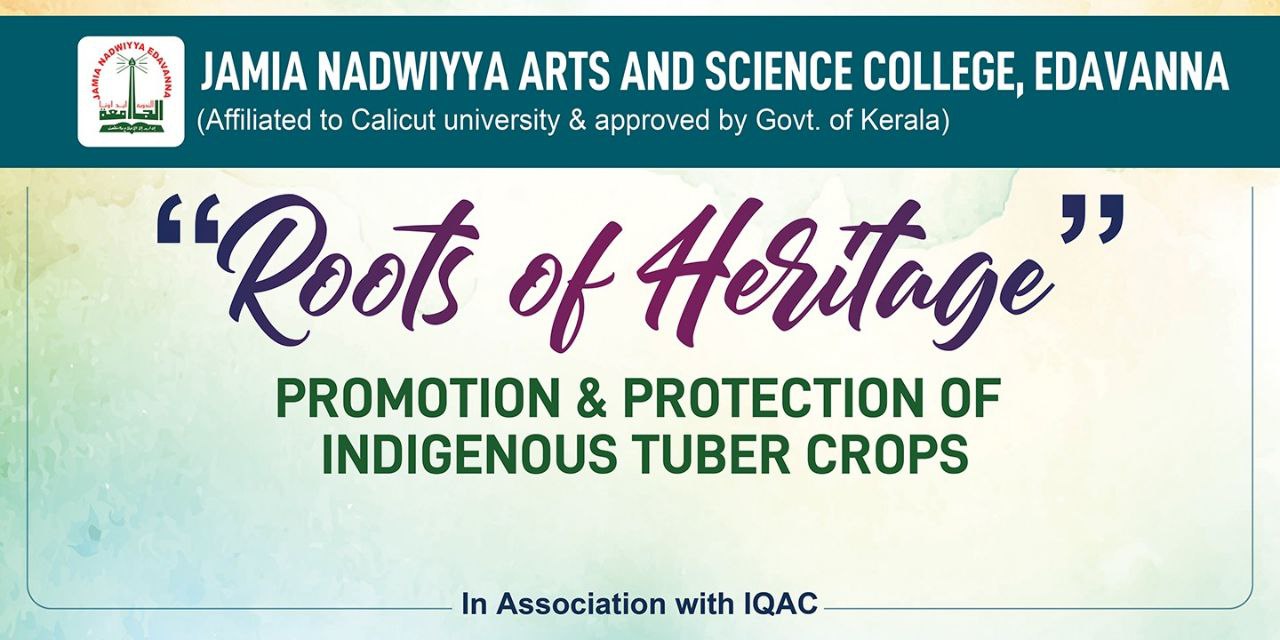"Roots Of Heritage"

Roots of Heritage: Promoting Tuber Crop
Objectives of the Practice
The primary objective of the "Roots of Heritage" initiative is to cultivate and promote the importance of tuber crops such as cassava on the college campus and among local farmers. The program aims to educate students and the community about sustainable agricultural practices, provide manpower and resources to local farmers, and celebrate the cultural significance of tuber crops through an annual food festival. The initiative also strives to enhance food security and promote biodiversity.
The Context
The "Roots of Heritage" initiative was developed in response to the need for sustainable agricultural practices and the preservation of traditional crop varieties in the region. The college recognized the potential of tuber crops to contribute to food security and economic stability for local farmers. However, the initiative had to address several challenges, including the destruction of crops by wild animals and adverse weather conditions. By focusing on these issues, the program aimed to create a resilient agricultural practice that could withstand these challenges and benefit both the college and the local community.
The Practice
The "Roots of Heritage" initiative involves the annual cultivation of cassava and other tuber crops on the college campus. This practice is unique in the context of Indian higher education as it integrates agricultural education with community service and cultural celebration. Students and faculty members actively participate in the cultivation process, gaining hands-on experience in sustainable farming. Additionally, the college conducts awareness sessions and provides manpower to local farmers, helping them adopt better farming techniques and improve their yields.
A key highlight of the initiative is the annual food festival centered around tuber crops. This event showcases various dishes made from tubers, celebrating their cultural and nutritional significance. The festival not only promotes the consumption of tuber crops but also provides a platform for local farmers to sell their produce, thereby supporting their livelihoods.
Evidence of Success
The success of the "Roots of Heritage" initiative is evidenced by the increased yield of tuber crops on the college campus and the positive feedback from local farmers who have benefited from the awareness sessions and support provided. The annual food festival has grown in popularity, attracting a larger audience each year and fostering greater appreciation for tuber crops. Performance against targets is monitored through yield measurements and farmer satisfaction surveys, which indicate improved crop productivity and farmer engagement. These results demonstrate the initiative's impact on promoting sustainable agriculture and preserving cultural heritage.
Problems Encountered and Resources Required
One of the primary problems encountered is the destruction of crops by wild animals, which poses a significant threat to the yield. Additionally, adverse weather conditions such as heavy rains can negatively affect crop growth. To address these challenges, resources required include fencing and other protective measures to safeguard crops from wildlife, as well as irrigation systems and
weather-resistant crop varieties to mitigate the impact of adverse weather.
Any Other Information
The "Roots of Heritage" initiative aligns with the broader goals of promoting institutional values such as sustainability, community service, and cultural preservation. By involving students in agricultural practices and community outreach, the initiative also contributes to their holistic education and development.


























